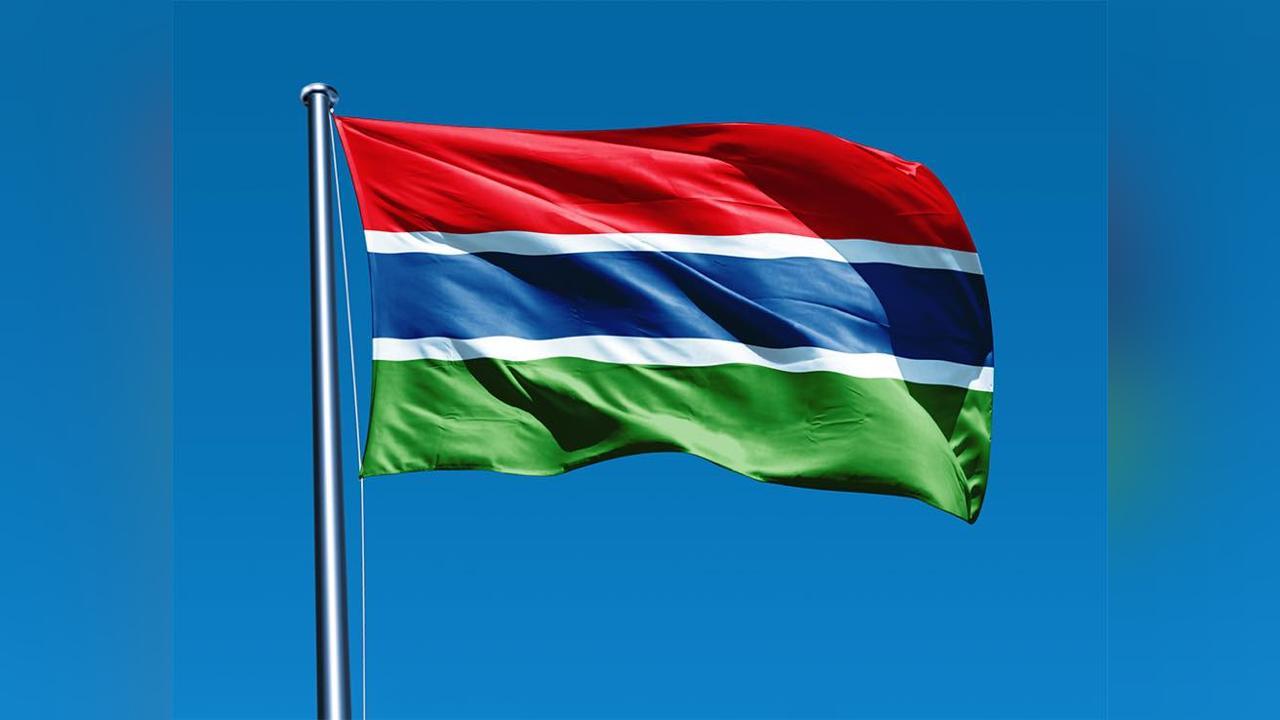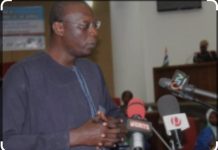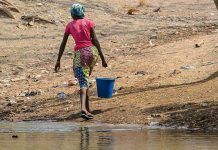By Sajo Jallow
Africa-Press – Gambia. Kodo or money, we are taught, is for trading in goods and services, and for storing value. From the use of cowrie shells and other means in olden days to the present-day use of paper, coins and digital variants, money continues to ascend in value. On this organized trail, or kodi silo, financial institutions take center stage, with the central banks as overseers.
The estimated value of financial mediation in The Gambia, as narrated by its central bank created in 1971, has risen from millions in the 1960s to billions today; and from an ancestral cowrie shell to a colonial pound, then to a republican dalasi. The Gambia’s output of goods and services, or gross domestic product (GDP), for 2024 was valued at about 110 billion dalasi. But the value of buying and selling foreign exchange, that is, the US dollar, Euro, British pound, and other currencies, was close to 200 billion dalasi, far more than the GDP value as a measure of scale.
The same gap, between producers of goods and services and the traders of kodo or money, is evident on the global stage. The global output of goods and services, or GDP, was valued at about 110 trillion US dollars in 2024. But global foreign exchange trade was valued, based on the spot transaction and over the counter by April, 2025, at about 3 trillion US dollars on a daily average; or more than 9 trillion US dollars daily, if swaps, forwards, and options are included, according to the three-year central bank surveys cited by the Bank for International Settlements (BIS). Just imagine the scale of this gap, between global producers and forex traders or julas.
By Investopedia’s definition on-line, another complex form of money or kodi item traded in global markets is the derivative, a financial contract whose value is based on underlying assets like stocks, bonds, commodities, currencies, interest rates, and exchange market benchmarks or ratings. The global value of such derivatives traded outside of centralized market exchanges, so-called over the counter (OTC), was about 730 trillion US dollars in 2024, compared to the global output of goods and services, or GDP, valued at about 110 trillion US dollars. That is, a gap of close to seven times between the producers and traders. This was not only a clear-cut domination of exploitative finance enablers, or kodi Julas, but was also the source of the of scandalous, global financial crisis in 2008-9; “too big to fail”, they claimed.
These complicated and huge numbers arise from only a part of global trading activities, but simply put, they represent more than seven times what was produced in goods and services globally. The point is that owners of capital and their traders control a lot more value than owners of labor, at greater risk to social stability.
What shall we do?
Or what shall we regulate in society, beyond what central bank overseers are doing? The cost-of-living crisis facing working people on this money trail requires urgent strategic action. It is not enough with routine monetary policy statements that have limited impact on endemic mass poverty, persistent inflation, and rising wealth-income inequality. A strategic reset, maybe, to orient the money trail, or kodi silo, towards cooperative, not competitive, investment in livelihoods for working people.
Financial institutions in The Gambia now hold about 80 billion dalasi in deposits, with the lion share in commercial banks. But lending to productive agriculture for food or human security is limited because of calculated risk and profit. Public debt, instead, is more profitable to capital owners or toll-keepers of the money trail, or kodi silo. From the central bank’s press release dated September 1-2, 2025, we read about a confident banking sector: “Total industry assets expanded by 7.2 percent between March and June 2025, reaching D110.9 billion, equivalent to 64.3 percent of GDP. Customer deposits also rose, amounting to D81.4 billion or 41.9 percent of GDP,…. The industry’s earnings remain strong, registering return on assets (ROA) and returns on equity (ROE) of 3.7 percent and 16.7 percent, respectively.”
Clearly, it is more profitable in the long-term for society to regulate and plug holes on the money trail or kodi silo, to achieve human security. In ST Brikama Boyo’s song, Kodo bay Kodo, we hear that “Kodo buka kangfa,… a sotolal leka konofa.” Money, or kodo, like any tool, can be used to do good or bad. A cooperative, or national development bank, whichever comes first, needs to be established urgently in the service of working people, in particular women and the youth fighting daily to stay on the trail of prosperity, or kaira silo. And by extension, on the digital or chain trail of pan-African payment and settlement systems.
voice
For More News And Analysis About Gambia Follow Africa-Press






